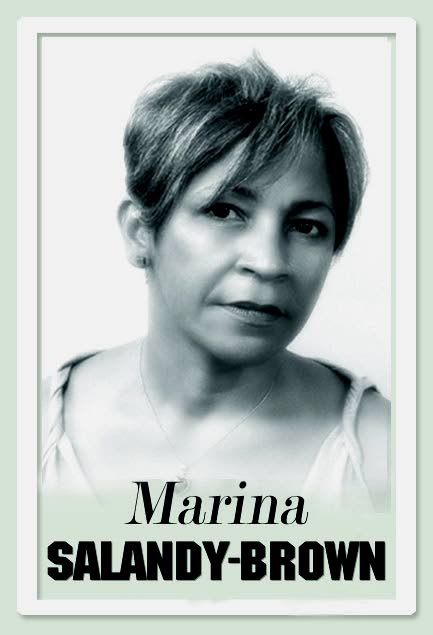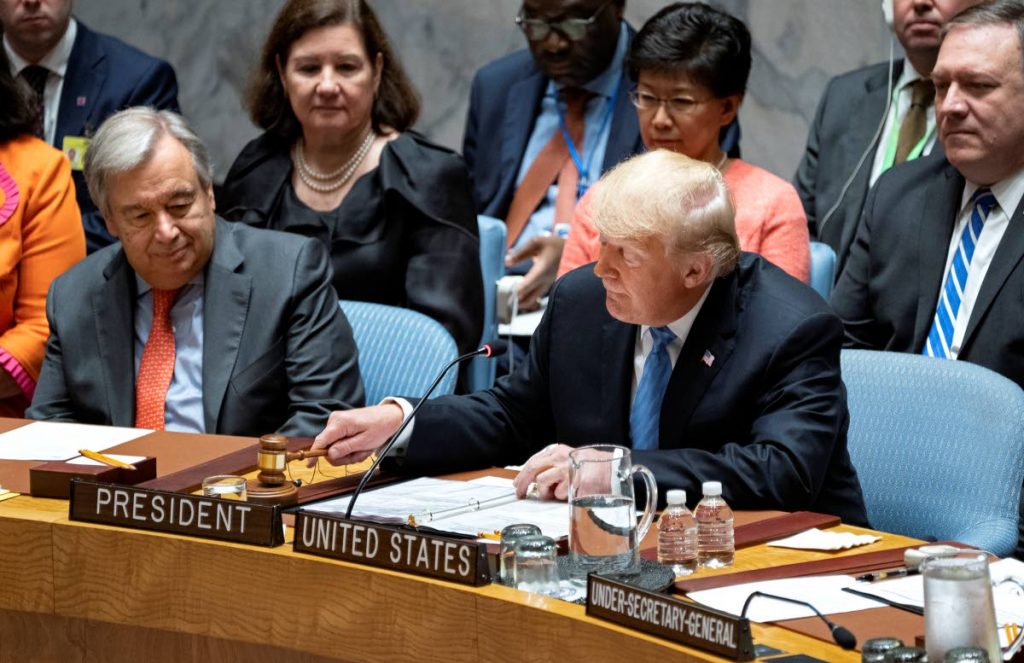Globalisation, no. Patriotism, yes

The speech given by President Trump to the UN General Assembly on Tuesday would have made anyone interested in contemporary history, politics and economics realise that the retreat from the premise governing international relations over the last 70 years had hastened. Even the most diehard conservative outside the US would have gulped hard at the very blunt declaration of the US’s belief in localisation over internationalisation and in the doctrine of patriotism.
It is worth considering how we have come to this point and the significance of it in tangible terms, but what about the ideas behind these seemingly opposing beliefs?
Let’s begin with patriotism, which enjoys a lot of favour in TT, where we clearly and rightly believe that fostering love of country is necessary in order to help in its development. Patriotism encourages citizens to put country first and to be proud of its culture, people, history and successes.
It is sensible for a government to want to do that and it is a natural impulse in people, anyway, to feel attached to the land of their birth or of their ancestors, and even to the country that allowed them to realise their potential or offer them safe haven.

But we must be aware that these impulses spring from the same place as do our tribal emotions, and these are not rational.
A country’s most common symbols of patriotism are its national anthem and flag, and the enthusiastic use of these is encouraged to a fault, in my estimation, since a lot of rigidity surrounds their use, which can border on the unreasonable. I cite the example of African American athletes using various opportunities during the playing of the US anthem to make silent, respectful protest about the condition of life for their ethnic communities. It can be argued that their protest is a form of patriotism, which seeks not to destroy but to unite through seeking and enjoying equal status.
Yet their actions attract extreme ugliness from those who interpret patriotism in a much narrower and fixed manner. US citizens should learn their history or be reminded of how patriotism was ill used by Senator McCarthy in those post-World War II years and the enormous damage it did to the people of the US.
Patriotism is essentially group emotion and can easily lead to zealousness, which resists all reason, and can even become nationalism, driven by insularity, tinged with a persecution complex. The tortured decision of the British people to leave the European Union, causing the present political chaos and possible economic meltdown, is a good example of the ideological danger of patriotism. And it can get worse. History is littered with terrible examples of leaders stirring nationalistic aggression in their people.
As for globalisation, the lustre of a world of open borders may have been wearing a bit thin and President Trump would have won some support for the belief that his country is a victim of globalisation – financially ripped off in bi-and-multilateral regional and international trade agreements, and also as the main donor to the world’s inefficient and sometimes corrupt international organisations – but his full-scale rebuttal of so much that we believe in is sobering.
It is true that globalisation has its downsides and well as its pluses. Jobs in many countries have disappeared as industries have migrated to cheaper production locations and the challenges of terrorism and health epidemics have been hard to manage, but presenting being part of the how the world lives – as an interdependent international family – as diametrically opposite to patriotism is a far stretch and it devalues the intentions of the international community by picking out the shortcomings of its housekeeping as a threat to US sovereignty.
Economics and politics are only aspects of the interwoven fabric of globalisation. In his free-ranging BBC Reith Lectures of the 1990s, leading British sociologist Anthony Giddens promoted the idea of globalisation as extending into the social, even the personal. He made the point that, for example, the debate on family values and women’s equality was part of globalisation, as those issues were being transformed by universal economic and political pressures. In that sense, globalisation, he said, was “a complex set of processes, not a single one.” That is still true.
The voice of deepening insularity and creeping nationalism is particularly disconcerting because our house may not be in perfect order but it has kept a lot of people much safer, even if war has never ceased to exist during the last 70 years. I realise now that we do not learn from history and are doomed to move between cycles of peace and war or calm and mayhem.


Comments
"Globalisation, no. Patriotism, yes"